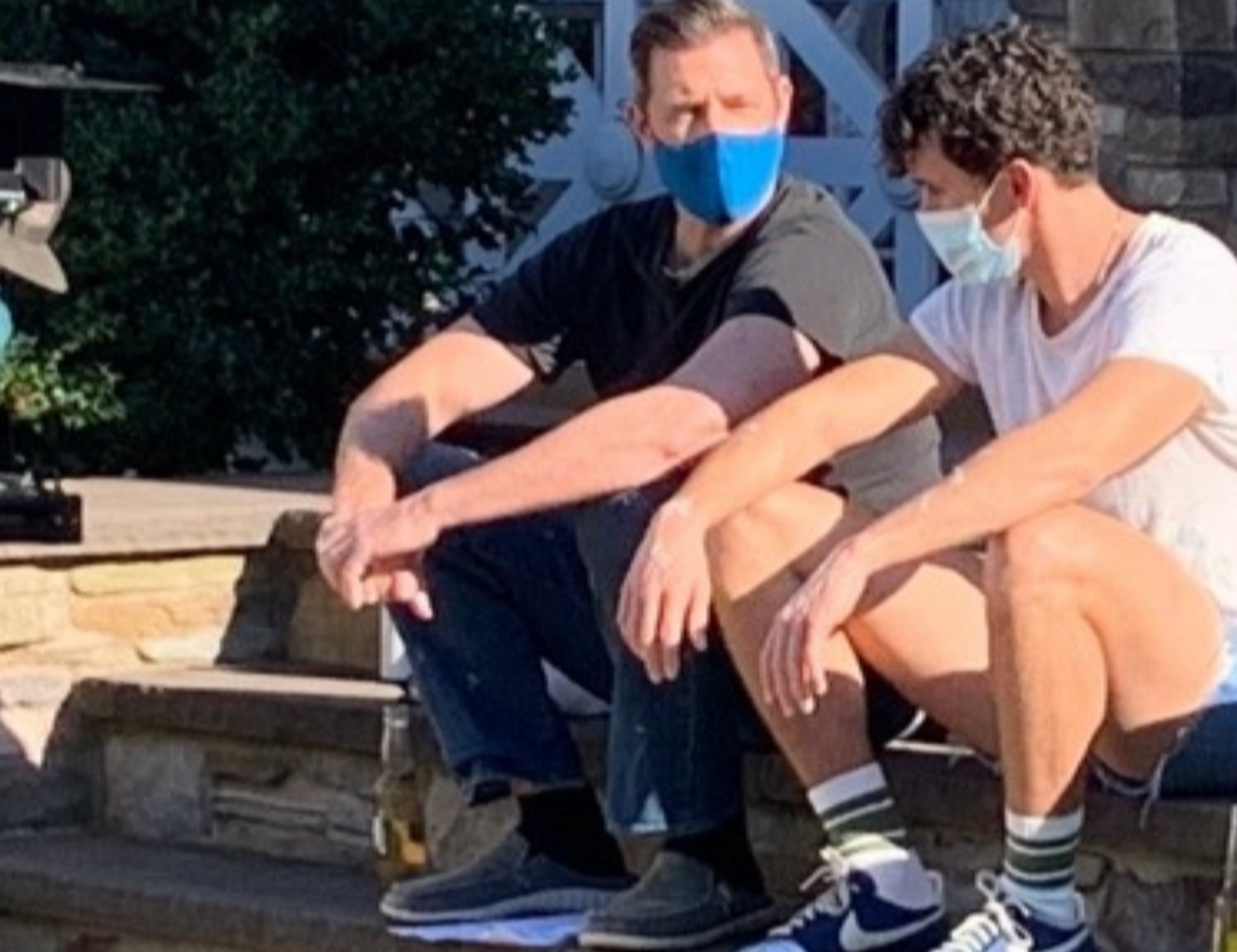EdwardBurns
MarketWatch “Bridge and Tunnel” Feature

There was a moment, early in the summer of COVID, when the forthcoming EPIX TV series “Bridge and Tunnel” looked doomed.
The virus was raging. TV production was frozen on both coasts. And the show’s creator, Ed Burns, had a script about half a dozen fresh college graduates on Long Island, chasing their anxious dreams into Manhattan while still clinging to the familiar comforts of their working-class suburb.
Would he have to put his actors in face masks? Would the kids do all their hanging out (and corral their raging libidos) six feet apart? What about the dive bars, pizza parlors and nightclubs that were supposed to establish the show’s time and place? With a plot like this one, set in the mid-punk days of 1980, preachy social distancing was exactly not the point.
Advertisement
Burns had sold the series to Michael Wright, president of the premium cable channel EPIX, who’d said over lunch one day: “I’m dying to do a show that will put a smile on people’s faces. Can you come up with something that feels like a Jim Brooks movie?” Wright also mentioned the sweet coming-of-age film “Diner.”
“I don’t want straight comedy,” the network boss added, “and I don’t want a drama.” Something authentic and in between.
But three months into the COVID-19 lockdown, the eight-episode series that Burns dreamed up—shot half on Long Island, half in Manhattan—was clearly not getting made any time soon.
“People were saying, ‘Well, we might have to pull the plug on this one,’” Burns said. “I knew I had to get creative fast,” a skill he’s needed more than once in the 26 years since “The Brothers McMullan” established him as a down-to-earth actor and a force in independent film.
And so the pandemic re-imagining began.
“Everything kinda stopped for a month while we waited to see what the future would hold for COVID and what would production look like if we were ever able to return,” Burns said. “I told Michael, ‘What if I took our eight episodes and knocked it down to six? And let me get rid of everything that takes place in Manhattan,’ which would have meant a bigger cast and a lot more complication. ‘Every pizza parlor and bar and nightclub and all those places, they’re gone.’
Cast and crew safety wasn’t the only concern, once cautious production was greenlit again on July 20. The exploding budget was another one. Under the new production rules set by the city, the state and the unions, every day on the set was going to be slower and more expensive, if it happened at all.
Advertisement
“It was all of those things you were gonna need, in addition to masks and shields and cleaning crews and testing three times a week,” the Queens-born writer, director and actor said. “You had to shoot shorter days, which also added days to the overall schedule. The crew broke down into different zones. In normal times, when we’d start a scene, we’d all walk into the location together. The actors, the camera department, the lighting department, the props people. We’d take notes and everybody would get their marching orders.” But that was suddenly impossible with a pandemic everywhere.
“You could no longer put 15 to 30 people in a room together. The limit was six or eight. Now, we had to do everything in three or four steps. And every minute on set is a ton of money,” Burns said.
What normally took 20 minutes could easily take hours.
“Two weeks from shooting, I was still rewriting the script,” Burns said. That meant coming up with new lines of dialogue and explaining certain oddities. “Why is this bar completely empty on a Saturday night? Why does the diner Tammy works in have only two customers at any time of day?” And the show needed more suburban houses.
“When we shoot in someone’s home or business, we shoot there for the day, and the homeowner moves back in at night,” Burns said. “Now, we had to find hotels for the families or Airbnbs. But in a way, those things were also a blessing. We found four houses on one block in Lynbrook [on Long Island]. I changed the script to say the kids all grew up on the same block.” Confrontations at backyard barbecues. Heart-to-hearts on porches. Flirting in the driveway. And the characters got a new park to hang out in, their own Promised Land. “None of that was in the original screenplay,” Burns said.
Also, he couldn’t help but notice, the young actors in his ensemble cast really seemed to bond, all staying together in the same hotel. Burns plays one of the dads, whose brooding son, Jimmy, is Sam Vartholomeos, a young actor from Queens.
Yes, Burns said, it was painful cutting all those city scenes he’d written. No writer likes his poetry going to waste. “But we’ll use ’em in season two,” he said, hopefully. No order yet, but Burns said the signs are good. While he was trying to rescue the show, he said, his mood was buoyed by the music in his house on Long Island.
“My son had just discovered the first couple of Beatles albums,” he said. “That’s all I was listening to while I was writing. I was thinking I want this show to feel like ‘I Wanna Hold Your Hand’ and ‘Eight Days a Week.’ Happy. Full of promise and hope and joy and love. I was listening to that stuff, and it was infectious.”
“Bridge and Tunnel,” written, directed and produced by Edward Burns, premieres Jan. 24 at 9 p.m. on EPIX.
Making TV shows is never easy, Burns said. But after making this one in the throes of COVID-19, one of the crew members said: “I will never, ever complain about a day on set ever again.”